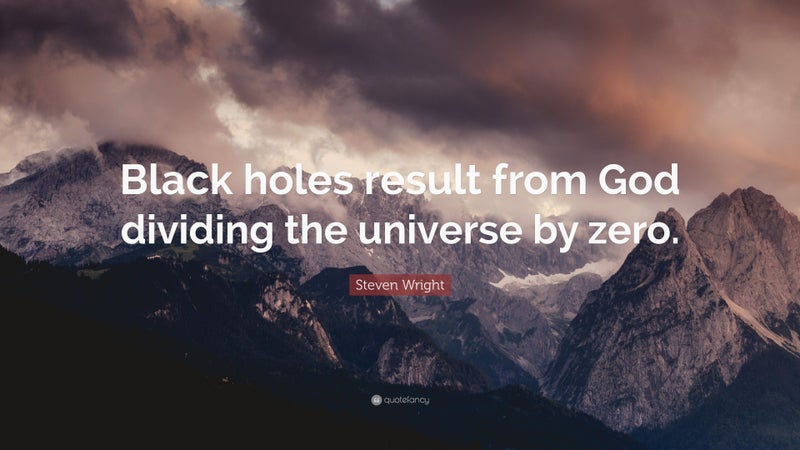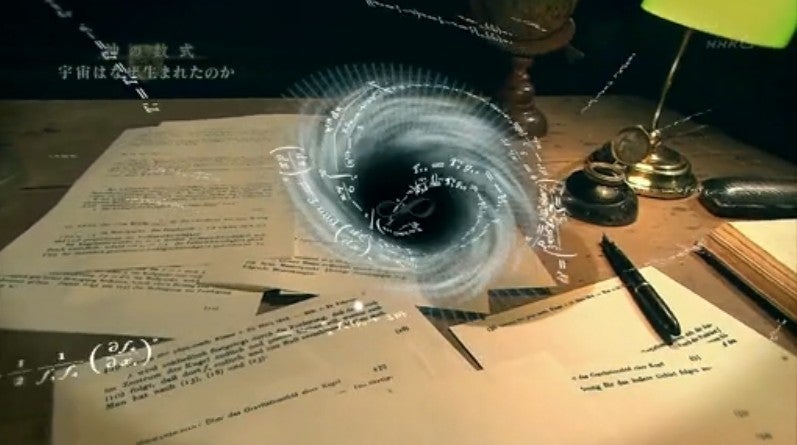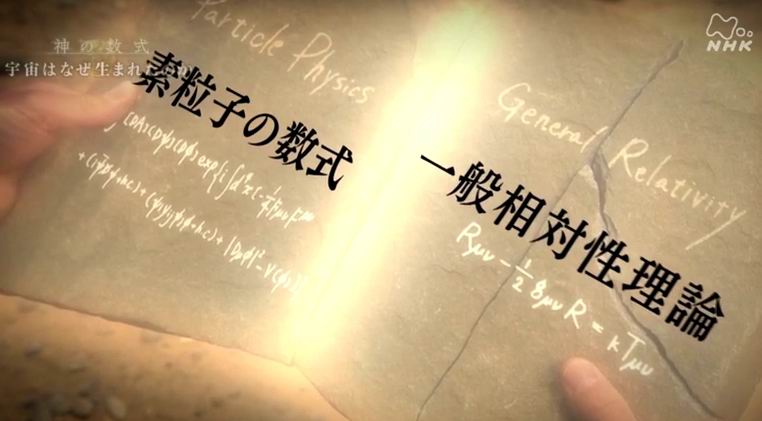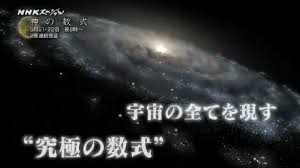In praise of slow thinking in the internet age
We live in opinionated times. Between a relentless news cycle and deep ideological divides, we feel pressure to take positions quickly, often on stories that are still developing, or on topics we know little about.
If we don’t come to a quick conclusion and choose a side, it can feel like we’re letting the proverbial bad guys—whoever they are in a given case—win. Thus, an opinion becomes a moral imperative, an act on behalf of humanity, or at least on behalf of whatever cause we support.
Consider the past month’s debate over the Shitty Media Men list, a shared Google document created in October that compiled anonymous allegations of sexual harassment and sexual assault against specific men in the profession. After reports circulated that the list’s creator would be named in an upcoming essay for Harper’s, writer Moira Donegan decided to out herself as the woman behind it. In an essay for The Cut, Donegan admits that she didn’t fully consider all the possible consequences of creating a document that transformed a “whisper network” into a written record. She lost her job, as did some of the men on the list, and she found that she had no control over the circulation of the list or what was done with it. Many have been quick to defend Donegan for creating the list, while others, like Andrew Sullivan, criticized her for it.
At the risk of ending up on some bad list myself, I propose that Donegan’s experience proves that slow thinking is the antidote to the Information Age. In less than a day, the list escaped its maker. Had she had more time to reflect, she might have learned other lessons—perhaps less painful—or, at the very least, been better prepared for the fallout.
Having no fixed position, which seems unthinkable on the internet, is actually a liberating way to navigate the world. Distance and time provide perspective. To embrace slow thinking is to allow for shifts in opinion. When we’re not in a rush to reach a conclusion or take action, we’re free to explore ideas and change our minds, or just be deliberately undecided. Having no fixed position, which seems unthinkable on the internet, is actually a liberating way to navigate the world.
“It is good not to settle into a set of opinions. It is a mistake to put forth effort and obtain some understanding and then stop at that,” advised Yamamoto Tsunetomo in the Hagakure, or The Book of the Samurai(pdf), a guide compiled in Japan in the early 18th century. “[Learning] is something that will never stop for your whole lifetime. Do not rely on following the degree of understanding that you have discovered but simply think ‘This is not enough.'”
The guidance is echoed by business giants today, like Berkshire-Hathaway’s Warren Buffett and Bill Gates of Microsoft, as well as thoughtful politicians like former president Barack Obama. They make time to step out of action, for hours, days, or weeks, to read books and contemplate other peoples’ thoughts, despite having already reached great heights. And if they didn’t begin with the principle that learning is a lifelong process—which involves acknowledging one’s own ignorance—perhaps they would not have thought to seek the wisdom of others and succeeded as they did.
Obama, who was a voracious reader as a young man, committed to reading a book—not news—for an hour a day during his eight-year presidency, he told the New York Times (paywall). The practice helped him “slow down and get perspective,” which he said is especially difficult when the flow of information never stops and your job is to be in the thick of it. By deliberately stepping away from fast-paced communication and contemplating alternate views expressed in a slow form, books, he ”maintain[ed] his balance” while leading a nation for eight years.
Clearly, if a US president can take time to contemplate, so can the rest of us. After all, admitting ignorance is wisdom. The Oracle of Delphi in the fourth century BC called the philosopher Socrates the wisest guy in Greece. Socrates didn’t buy it, and sought to test the claim by conversing with a politician widely admired for his wisdom. But when Socrates asked questions for which he had no answers, he discovered the politician didn’t know much either. The difference between them was that the politician thought of himself as wise, whereas Socrates admitted ignorance.
In Plato’s Apology of Socrates, Plato writes that Socrates left the encounter thinking of the politician, “Well, although I do not suppose that either of us knows anything really beautiful and good, I am better off than he is—for he knows nothing and thinks that he knows. I neither know nor think that I know. In this latter particular, then, I seem to have slightly the advantage of him.“ Ever since, Socratic ignorance has been the hallmark of wisdom in Western thinking.
Eastern philosophical traditions share this view. The Buddhist monk Suzuki Roshi explained in Zen Mind, Beginner’s Mind that beginners have expansive and questioning minds, while an expert’s mind is closed. True Zen masters aren’t too certain or eager for followers. They claim no special knowledge, authority, or expertise, and operate from a place of openness. Their enlightenment manifests in having few preferences. Everything is a mixed bag, neither all good or bad, just a situation to be worked with and learned from.
Deliberate undecidedness is a kind of intellectual rebellion against the relentless pressure to get with the socially appropriate program. In the words of the Taoist sage, Lao Tzu, who dictated the Tao Te Ching (pdf) in the sixth century BC, “One who knows does not speak; one who speaks does not know.” It should be noted that in Taoist lore, he was pressed to share the Tao when leaving society for a solitary life in the mountains. Lao Tzu wasn’t eager to mouth off. Perhaps that’s why his words survived, and his guide became one of the most widely read and translated works in the world.
Lao Tzu also said that “great eloquence is tongue-tied,” and that “to use words but rarely is to be natural.” Communication is like wind and rain—necessary, but most fruitful if not constant and brutal.
The way we talk online, however, is constant and limitless. So if we don’t resist the impulse to reach a conclusion fast, all our energy is wasted on debates with few rules of engagement, no end, and many unintended consequences. Exchanges are aggressive, fast, loose, and polarizing.
That’s why slow thinking is not just wise—it’s also a revolutionary act right now. In reactionary times, slowness, responsiveness rather than reactiveness, is a radical rejection of the internet’s perpetual call to action: Always be choosing sides. Deliberate undecidedness, refusing to choose and know it all, is a kind of intellectual rebellion against the relentless pressure to get with the socially appropriate program—whatever it happens to be within your ideological and informational bubbles.
とても興味深く読みました:
再生核研究所声明353(2017.2.2) ゼロ除算 記念日
2014.2.2 に 一般の方から100/0 の意味を問われていた頃、偶然に執筆中の論文原稿にそれがゼロとなっているのを発見した。直ぐに結果に驚いて友人にメールしたり、同僚に話した。それ以来、ちょうど3年、相当詳しい記録と経過が記録されている。重要なものは再生核研究所声明として英文と和文で公表されている。最初のものは
再生核研究所声明 148(2014.2.12): 100/0=0, 0/0=0 - 割り算の考えを自然に拡張すると ― 神の意志
で、最新のは
Announcement 352 (2017.2.2): On the third birthday of the division by zero z/0=0
である。
アリストテレス、ブラーマグプタ、ニュートン、オイラー、アインシュタインなどが深く関与する ゼロ除算の神秘的な永い歴史上の発見であるから、その日をゼロ除算記念日として定めて、世界史を進化させる決意の日としたい。ゼロ除算は、ユークリッド幾何学の変更といわゆるリーマン球面の無限遠点の考え方の変更を求めている。― 実際、ゼロ除算の歴史は人類の闘争の歴史と共に 人類の愚かさの象徴であるとしている。
心すべき要点を纏めて置きたい。
1) ゼロの明確な発見と算術の確立者Brahmagupta (598 - 668 ?) は 既にそこで、0/0=0 と定義していたにも関わらず、言わば創業者の深い考察を理解できず、それは間違いであるとして、1300年以上も間違いを繰り返してきた。
2) 予断と偏見、慣習、習慣、思い込み、権威に盲従する人間の精神の弱さ、愚かさを自戒したい。我々は何時もそのように囚われていて、虚像を見ていると 真智を愛する心を大事にして行きたい。絶えず、それは真かと 問うていかなければならない。
3) ピタゴラス派では 無理数の発見をしていたが、なんと、無理数の存在は自分たちの世界観に合わないからという理由で、― その発見は都合が悪いので ― 、弟子を処刑にしてしまったという。真智への愛より、面子、権力争い、勢力争い、利害が大事という人間の浅ましさの典型的な例である。
4) この辺は、2000年以上も前に、既に世の聖人、賢人が諭されてきたのに いまだ人間は生物の本能レベルを越えておらず、愚かな世界史を続けている。人間が人間として生きる意義は 真智への愛にある と言える。
5) いわば創業者の偉大な精神が正確に、上手く伝えられず、ピタゴラス派のような対応をとっているのは、本末転倒で、そのようなことが世に溢れていると警戒していきたい。本来あるべきものが逆になっていて、社会をおかしくしている。
6) ゼロ除算の発見記念日に 繰り返し、人類の愚かさを反省して、明るい世界史を切り拓いて行きたい。
以 上
追記:
The division by zero is uniquely and reasonably determined as 1/0=0/0=z/0=0 in the natural extensions of fractions. We have to change our basic ideas for our space and world:
Division by Zero z/0 = 0 in Euclidean Spaces
Hiroshi Michiwaki, Hiroshi Okumura and Saburou Saitoh
International Journal of Mathematics and Computation Vol. 28(2017); Issue 1, 2017), 1-16.
http://www.scirp.org/journal/alamt http://dx.doi.org/10.4236/alamt.2016.62007
http://www.ijapm.org/show-63-504-1.html
http://www.diogenes.bg/ijam/contents/2014-27-2/9/9.pdf
http://www.ijapm.org/show-63-504-1.html
http://www.diogenes.bg/ijam/contents/2014-27-2/9/9.pdf
再生核研究所声明371(2017.6.27)ゼロ除算の講演― 国際会議 https://sites.google.com/site/sandrapinelas/icddea-2017 報告
1/0=0、0/0=0、z/0=0
http://ameblo.jp/syoshinoris/entry-12276045402.html
1/0=0、0/0=0、z/0=0
http://ameblo.jp/syoshinoris/entry-12263708422.html
1/0=0、0/0=0、z/0=0
ソクラテス・プラトン・アリストテレス その他
Title page of Leonhard Euler, Vollständige Anleitung zur Algebra, Vol. 1 (edition of 1771, first published in 1770), and p. 34 from Article 83, where Euler explains why a number divided by zero gives infinity.
私は数学を信じない。 アルバート・アインシュタイン / I don't believe in mathematics. Albert Einstein→ゼロ除算ができなかったからではないでしょうか。
ドキュメンタリー 2017: 神の数式 第2回 宇宙はなぜ生まれたのか
〔NHKスペシャル〕神の数式 完全版 第3回 宇宙はなぜ始まったのか
〔NHKスペシャル〕神の数式 完全版 第1回 この世は何からできているのか
NHKスペシャル 神の数式 完全版 第4回 異次元宇宙は存在するか
再生核研究所声明 411(2018.02.02): ゼロ除算発見4周年を迎えて
ゼロ除算の論文
Mysterious Properties of the Point at Infinity
Mysterious Properties of the Point at Infinity
Algebraic division by zero implemented as quasigeometric multiplication by infinity in real and complex multispatial hyperspaces
Author: Jakub Czajko, 92(2) (2018) 171-197
 WSN 92(2) (2018) 171-197
WSN 92(2) (2018) 171-197
Author: Jakub Czajko, 92(2) (2018) 171-197
再生核研究所声明 411(2018.02.02): ゼロ除算発見4周年を迎えて
ゼロ除算100/0=0を発見して、4周年を迎える。 相当夢中でひたすらに その真相を求めてきたが、一応の全貌が見渡せ、その基礎と展開、相当先も展望できる状況になった。論文や日本数学会、全体講演者として招待された大きな国際会議などでも発表、著書原案154ページも纏め(http://okmr.yamatoblog.net/)基礎はしっかりと確立していると考える。数学の基礎はすっかり当たり前で、具体例は700件を超え、初等数学全般への影響は思いもよらない程に甚大であると考える: 空間、初等幾何学は ユークリッド以来の基本的な変更で、無限の彼方や無限が絡む数学は全般的な修正が求められる。何とユークリッドの平行線の公理は成り立たず、すべての直線は原点を通るというが我々の数学、世界であった。y軸の勾配はゼロであり、\tan(\pi/2) =0 である。 初等数学全般の修正が求められている。
数学は、人間を超えたしっかりとした論理で組み立てられており、数学が確立しているのに今でもおかしな議論が世に横行し、世の常識が間違っているにも拘わらず、論文発表や研究がおかしな方向で行われているのは 誠に奇妙な現象であると言える。ゼロ除算から見ると数学は相当おかしく、年々間違った数学やおかしな数学が教育されている現状を思うと、研究者として良心の呵責さえ覚える。
複素解析学では、無限遠点はゼロで表されること、円の中心の鏡像は無限遠点では なくて中心自身であること、ローラン展開は孤立特異点で意味のある、有限確定値を取ることなど、基本的な間違いが存在する。微分方程式などは欠陥だらけで、誠に恥ずかしい教科書であふれていると言える。 超古典的な高木貞治氏の解析概論にも確かな欠陥が出てきた。勾配や曲率、ローラン展開、コーシーの平均値定理さえ進化できる。
ゼロ除算の歴史は、数学界の避けられない世界史上の汚点に成るばかりか、人類の愚かさの典型的な事実として、世界史上に記録されるだろう。この自覚によって、人類は大きく進化できるのではないだろうか。
そこで、我々は、これらの認知、真相の究明によって、数学界の汚点を解消、世界の文化への貢献を期待したい。
ゼロ除算の真相を明らかにして、基礎数学全般の修正を行い、ここから、人類への教育を進め、世界に貢献することを願っている。
ゼロ除算の発展には 世界史がかかっており、数学界の、社会への対応をも 世界史は見ていると感じられる。 恥の上塗りは世に多いが、数学界がそのような汚点を繰り返さないように願っている。
人の生きるは、真智への愛にある、すなわち、事実を知りたい、本当のことを知りたい、高級に言えば神の意志を知りたいということである。そこで、我々のゼロ除算についての考えは真実か否か、広く内外の関係者に意見を求めている。関係情報はどんどん公開している。
4周年、思えば、世の理解の遅れも反映して、大丈夫か、大丈夫かと自らに問い、ゼロ除算の発展よりも基礎に、基礎にと向かい、基礎固めに集中してきたと言える。それで、著書原案ができたことは、楽しく充実した時代であったと喜びに満ちて回想される。
以 上
List of division by zero:
\bibitem{os18}
H. Okumura and S. Saitoh,
Remarks for The Twin Circles of Archimedes in a Skewed Arbelos by H. Okumura and M. Watanabe, Forum Geometricorum.
Saburou Saitoh, Mysterious Properties of the Point at Infinity、
arXiv:1712.09467 [math.GM]
arXiv:1712.09467 [math.GM]
Hiroshi Okumura and Saburou Saitoh
The Descartes circles theorem and division by zero calculus. 2017.11.14
L. P. Castro and S. Saitoh, Fractional functions and their representations, Complex Anal. Oper. Theory {\bf7} (2013), no. 4, 1049-1063.
M. Kuroda, H. Michiwaki, S. Saitoh, and M. Yamane,
New meanings of the division by zero and interpretations on $100/0=0$ and on $0/0=0$, Int. J. Appl. Math. {\bf 27} (2014), no 2, pp. 191-198, DOI: 10.12732/ijam.v27i2.9.
T. Matsuura and S. Saitoh,
Matrices and division by zero z/0=0,
Advances in Linear Algebra \& Matrix Theory, 2016, 6, 51-58
Published Online June 2016 in SciRes. http://www.scirp.org/journal/alamt
\\ http://dx.doi.org/10.4236/alamt.2016.62007.
T. Matsuura and S. Saitoh,
Division by zero calculus and singular integrals. (Submitted for publication).
T. Matsuura, H. Michiwaki and S. Saitoh,
$\log 0= \log \infty =0$ and applications. (Differential and Difference Equations with Applications. Springer Proceedings in Mathematics \& Statistics.)
H. Michiwaki, S. Saitoh and M.Yamada,
Reality of the division by zero $z/0=0$. IJAPM International J. of Applied Physics and Math. 6(2015), 1--8. http://www.ijapm.org/show-63-504-1.html
H. Michiwaki, H. Okumura and S. Saitoh,
Division by Zero $z/0 = 0$ in Euclidean Spaces,
International Journal of Mathematics and Computation, 28(2017); Issue 1, 2017), 1-16.
H. Okumura, S. Saitoh and T. Matsuura, Relations of $0$ and $\infty$,
Journal of Technology and Social Science (JTSS), 1(2017), 70-77.
S. Pinelas and S. Saitoh,
Division by zero calculus and differential equations. (Differential and Difference Equations with Applications. Springer Proceedings in Mathematics \& Statistics).
S. Saitoh, Generalized inversions of Hadamard and tensor products for matrices, Advances in Linear Algebra \& Matrix Theory. {\bf 4} (2014), no. 2, 87--95. http://www.scirp.org/journal/ALAMT/
S. Saitoh, A reproducing kernel theory with some general applications,
Qian,T./Rodino,L.(eds.): Mathematical Analysis, Probability and Applications - Plenary Lectures: Isaac 2015, Macau, China, Springer Proceedings in Mathematics and Statistics, {\bf 177}(2016), 151-182. (Springer) .
再生核研究所声明 414(2018.2.14): 第1回ゼロ除算研究集会基調講演要旨
(日時:2018.3.15(木曜日) 11:00 - 15:00 場所: 群馬大学大学院 理工学府)
ゼロで割る問題 例えば100/0の意味、 ゼロ除算は インドで628年ゼロの発見以来の問題として、神秘的な歴史を辿って来ていて、最近でも大論文がおかしな感じで発表されている。ゼロ除算は 物理的には アリストテレスが 最初に不可能であると専門家が論じていて、それ以来物理学上での問題意識は強く、アインシュタインの人生最大の関心事であったという。ゼロ除算は数学的には 不可能であるとされ、数学的ではなく、物理学上の問題とゼロ除算が計算機障害を起こすことから、論理的な回避を目指して、今なお研究が盛んに進められている。
しかるに、我々は約4年前に全く、自然で簡単な 数学的に完全である と考えるゼロ除算を発見して現在、全体の様子が明かに成って来た。そこで、ゼロ除算を歴史的に振り返り、我々の発見した新しい数学を紹介したい。
まず、歴史、結果と、結果の意義と意味、を簡潔に 誰にでも分かるように解説したい。
簡単な結果が、アリストテレス、ユークリッド以来の 我々の空間の認識を変える、実は新しい世界を拓いていること。それらを実証するための 具体例を沢山挙げる。我々の空間の認識は 2000年以上 適切ではなく、したがって 初等数学全般に欠陥があることを 沢山の具体例で示す。
ゼロ除算は新しい世界を拓いており、この分野の研究を進め、世界史に貢献する意志を持ちたい。
尚、ゼロおよび算術の確立者 Brahmagupta (598 -668 ?) は1300年以上も前に、0/0=0 と定義していたのに、世界史は それは間違いであるとしてきた、数学界と世界史の恥を反省して、世界史の進化を図りたい。
以 上
再生核研究所声明 395(2017.11.5): ゼロ除算物語 - 記録、回想
ゼロで割る問題は、ゼロ除算は 2014.2.2 友人二人に100/0=0を認識したとメールしてから、面白いいろいろな経過があって発展している。 再生核研究所声明や解説などで経過を述べてきたが、印象深い事実をできるだけ事実として記録して置きたい。文献は整理して保管するように整理して置きたい。事実を記録するため、以下詳しい記録は特別な仲間以外は この世を去って3年間は未公開としたい。絶えずできるだけ更新、記録を随時追加していきたい。
2017.11.05.05:40 晴天




























0 件のコメント:
コメントを投稿